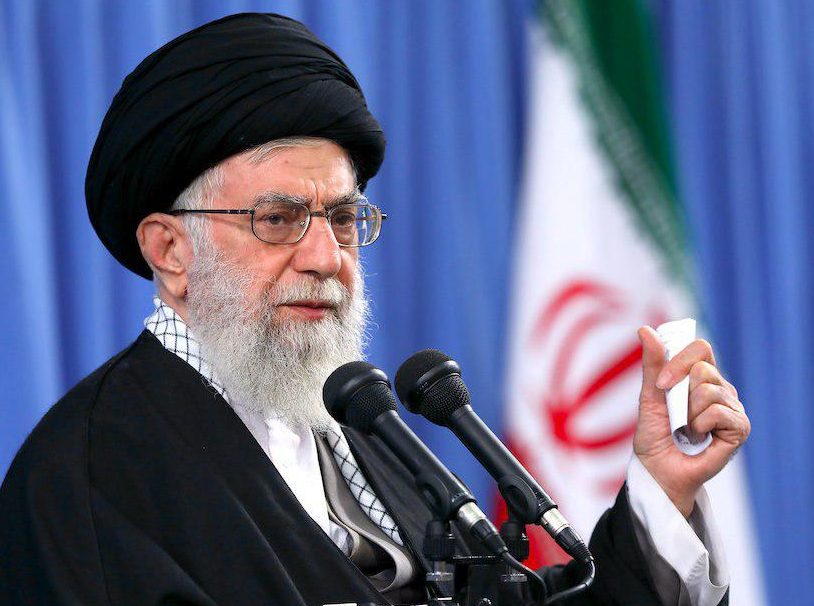Addressing a gathering of teachers and academics in Farhangian University in Tehran on Wednesday, Ayatollah Khamenei said it would be “illogical” for Iran to stay in the deal without clear assurances.
The Leader, however, said he is pessimistic that the three European countries – the UK, Germany and France – would give Iran firm guarantee for fulfilling their undertakings.
Ayatollah Khamenei said the US withdrawal from JCPOA demonstrated that Iran’s nuclear activities, which had peaceful applications, were just a pretext for Washington to place pressure on Iran.
“We agreed to the deal, but [the US] hostility towards Iran did not finish,” the Leader said.
“Now they are raising the issue of our presence in the region and missiles, but [their hostility] will not end even if we accept [restrictions],” he said.
Root of US Hostility
The Leader said the hostility of the US towards Iran has its origins in the Islamic Revolution of 1979, which toppled the rule of the US-backed dictator Mohammad Reza Pahlavi.
“Their opposition to the Islamic Republic is due to the fact that the revolution ended the total domination of the US over Iran,” he said.
Ayatollah Khamenei further noted the US wants puppet regimes in the region, who can be milked by Washington and discarded whenever needed.
“A few days ago, we got our hands on a letter from Trump to heads of Persian Gulf countries. In the letter, Trump says I spent $7 trillion for you and in return, you should do this,” the Leader said, without elaborating on the US demand.
“You spent [the money] to dominate Iraq and Syria, but you couldn’t. To hell with that!” the Leader said, suggesting it is yet another attempt by the US at milking the wealthy oil kingdoms.
Iranian officials have warned that they will ramp up Tehran’s nuclear program if the deal collapses, to achieve a more advanced level than before the deal.
Among the measures Iran has suggested it will take are restoring its 20-percent uranium enrichment and abandon the Non-Proliferation Treaty on nuclear weapons.
The pact settled a 12-year dispute between Iran and western powers accusing Iran of covertly building nukes, an allegation that has always been rejected by Tehran.
Under the deal, Iran undertook to place confidence-building restrictions on its nuclear program in exchange for the removal of the US, EU and UN sanctions on Iran.
Trump, who has hardened the US line on Iran and spared no chance to attack the nuclear deal, had threatened to withdraw from the accord unless what he called “disastrous flaws” of the nuclear deal are fixed.
Among the so-called flaws were that the nuclear deal has failed to curb Iran’s missile program and regional activities.
